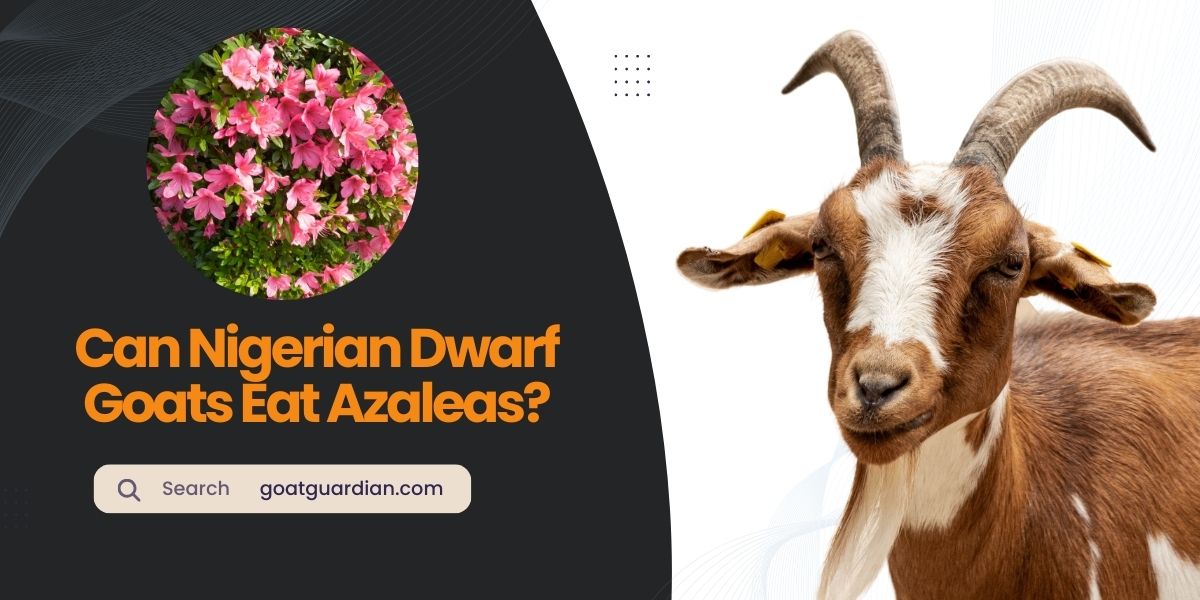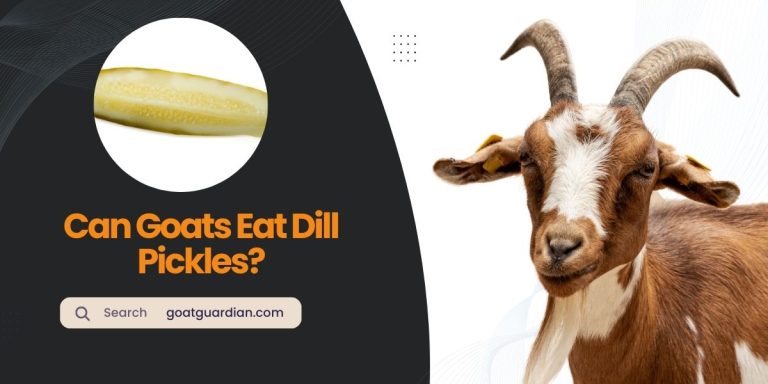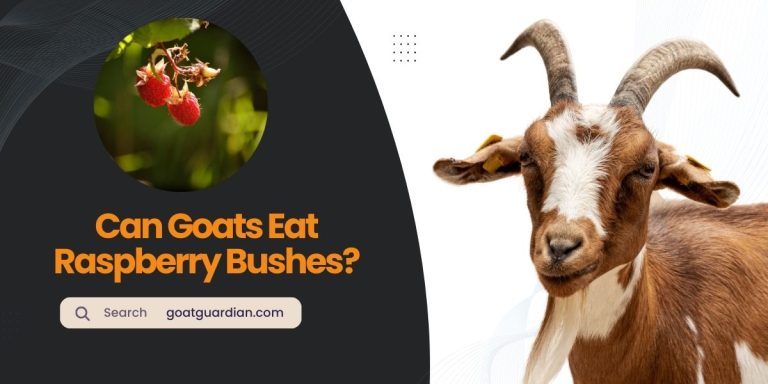Can Nigerian Dwarf Goats Eat Azaleas? Is It Toxic?
Nigerian Dwarf goats should not eat azaleas as they are toxic to them. Nigerian Dwarf goats, known for their small size and friendly nature, are a popular choice for hobby farmers and backyard enthusiasts.
However, it is essential to be aware of what these goats can and cannot eat to ensure their well-being. One plant that Nigerian Dwarf goats should avoid is azaleas. Azaleas are toxic to goats and can cause serious health issues if ingested.
With their natural curiosity and tendency to explore their surroundings with their mouths, it is important to keep these beautiful but dangerous plants out of reach of Nigerian Dwarf goats. We will discuss the potential dangers of azaleas for Nigerian Dwarf goats and provide tips on how to safeguard their grazing areas.
Understanding The Risks Of Azaleas For Nigerian Dwarf Goats
Potential health hazards associated with azalea consumption:
Azaleas can be toxic to Nigerian Dwarf goats, and even a small amount of the plant’s foliage can result in poisoning. Although animals can recover if treated promptly, azalea poisoning is often fatal for goats. Owners should make every effort to prevent exposure of goats to azaleas through such means as securely fencing them away from the plants. Goats seem to be attracted to the taste of azaleas and will readily consume them.
Effects of azalea toxicity on Nigerian Dwarf goats:
Azalea toxicity can cause a great deal of damage to the health of Nigerian Dwarf goats. It can lead to symptoms such as gastrointestinal distress, including diarrhea, vomiting, and loss of appetite. It can also cause cardiovascular issues, liver damage, and muscle weakness. The severity of azalea poisoning in goats can vary depending on the amount of the plant ingested and the overall health of the goat.
It is important for goat owners to be aware of the potential risks of azalea consumption and to take necessary precautions to prevent goats from accessing these toxic plants. If a goat does consume azaleas, immediate veterinary care should be sought to help minimize the impact of the toxicity on the goat’s health.
Identifying Azaleas And Their Toxic Components
| Characteristics and common types of azaleas |
Azaleas are beautiful flowering shrubs that are commonly found in gardens and pastures. They come in various colors and have distinctive characteristics such as glossy evergreen leaves and trumpet-shaped flowers. However, it is important to note that azaleas can be toxic to Nigerian Dwarf goats.
Azaleas contain toxic substances, including grayantoxins and grayanotoxins, which can be harmful if ingested by goats. These toxins can affect the cardiovascular and nervous systems, causing symptoms such as weakness, tremors, seizures, and even death.
To recognize azaleas in your garden or pasture, look for their specific features like small, clustered flowers and dense foliage. They typically bloom in the spring and can be found in shades of pink, white, red, and purple.
It is crucial to prevent goats from accessing azaleas by securely fencing them away from the plants. Goats seem to be attracted to the taste of azaleas and will readily consume them if given the opportunity. If you suspect that a goat has ingested azaleas, seek veterinary assistance immediately to ensure proper treatment and prevent serious consequences.
Preventing Azalea Consumption By Nigerian Dwarf Goats
Preventing azalea consumption by Nigerian Dwarf goats is crucial to their health and well-being. Implementing proper fencing and enclosure measures is essential in keeping azaleas out of reach of goats. This helps to minimize the risk of accidental ingestion and potential poisoning.
Providing alternative forage options, such as grasses and other non-toxic plants, can help deter goats from consuming azaleas. It is important to educate goat owners on the dangers of azalea toxicity and the signs to watch out for in case of ingestion.
Prompt treatment is vital if a goat does consume azaleas, as the poisoning can be fatal if not addressed quickly. By implementing these preventive measures and raising awareness about azalea toxicity, we can ensure the well-being of Nigerian Dwarf goats.
Safe And Alternative Food Options For Nigerian Dwarf Goats
When it comes to the diet of Nigerian Dwarf goats, it is crucial to be aware of what plants and forage options are safe for them to consume. Several plant varieties can be toxic to goats, including azaleas, China berries, sumac, dog fennel, bracken fern, curly dock, eastern baccharis, honeysuckle, nightshade, pokeweed, red root pigweed, black cherry, Virginia creeper, and crotalaria.
Therefore, it is essential to prevent exposure of goats to these plants by securely fencing them away from the toxic plants.
Recommended plants and forage alternatives for Nigerian Dwarf goats:
There are plenty of safe and nutritional options that Nigerian Dwarf goats can eat. Some recommended plants and forage alternatives include but are not limited to:
- Grass hay, such as Bermuda, timothy, or orchard grass
- Clover
- Alfalfa hay (in moderation)
- Tree leaves, such as mulberry or willow
- Weeds, such as dandelions or plantains
- Vegetables, like pumpkin or carrots (in moderation)
Ensuring a balanced diet for Nigerian Dwarf goats:
It is important to provide a balanced diet to Nigerian Dwarf goats by incorporating a combination of safe plants, forage, and potentially supplements, depending on their specific nutritional needs. Consulting with a veterinarian or an experienced goat nutritionist can help determine the ideal diet plan for Nigerian Dwarf goats to ensure their overall health and well-being.
Treating Azalea Poisoning In Nigerian Dwarf Goats
| Azaleas are toxic to Nigerian Dwarf goats. Consuming even a small amount of azalea foliage can result in poisoning. Some other plants that are poisonous to goats include China berries, sumac, dog fennel, bracken fern, curly dock, eastern baccharis, honeysuckle, nightshade, pokeweed, red root pigweed, black cherry, Virginia creeper, and crotalaria. Owners should make every effort to prevent exposure of goats to azaleas by securely fencing them away from the plants. Goats seem to be attracted to the taste of azaleas and will readily consume them. If a Nigerian Dwarf goat has consumed azaleas, it is important to take immediate action. Some actions to take include: Time is of the essence when it comes to treating azalea poisoning in goats, as prompt action can greatly increase the chances of recovery. It is always better to err on the side of caution and seek professional help rather than trying to treat the goat at home. |
Frequently Asked Questions Of Can Nigerian Dwarf Goats Eat Azaleas
What Plants Are Toxic To Nigerian Dwarf Goats?
Some toxic plants for Nigerian dwarf goats include azaleas, China berries, sumac, dog fennel, bracken fern, and honeysuckle. It is important to prevent exposure to these plants as they can be fatal for goats.
Do Goats Like Azaleas?
Goats are attracted to the taste of azaleas and will readily consume them. However, azalea poisoning can be fatal for goats. Owners should make every effort to prevent exposure to azaleas by securely fencing them away from the plants.
What Animal Eats Azaleas?
Voles are the animals that eat azaleas. They can cause damage to the plants, leading to their decline and death.
What Shrubs Will Goats Not Eat?
Goats will not eat shrubs like boxwood, cotoneaster, laurels, oleander, lupines, larkspur, delphinium, daffodils, and narcissus, as they are poisonous to them. It’s important to keep these plants away from goats to avoid any harmful effects.
Conclusion
To conclude, Nigerian Dwarf goats should not be fed azaleas due to their toxicity. Consuming even a small amount of azalea foliage can lead to poisoning, which can be fatal for the goats. It is important for owners to take preventive measures, such as securely fencing the goats away from the plants, to ensure their well-being.
It is best to stick to a diet that includes safe and non-toxic plants for these adorable creatures.






